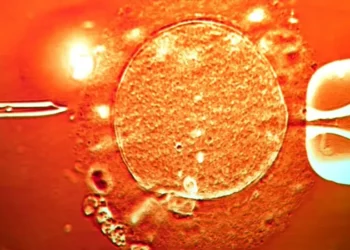The Dangerous Trend of ‘Honey Packets’ Among College Students
A new trend among college students is raising alarms among health professionals. The trend, which has gained attention on TikTok, involves the use of honey packets marketed as a sexual enhancement supplement. Students at Arizona State University have posted videos discussing their use of these packets, which have garnered over 400,000 views. Some students joke about using them, while others openly mention taking them on campus.
However, doctors are not laughing. The Food and Drug Administration (FDA) has warned against several honey packet brands, which contain hidden drug ingredients.
What’s Really Inside the Honey Packets?
While some honey packets contain natural ingredients like maca and ginseng—which may not have much of an impact—others include pharmaceutical drugs such as tadalafil, the active ingredient in Cialis, a medication for erectile dysfunction. According to Dr. Peter Leone, a professor of medicine at the University of North Carolina, “I’m all about people having good sex and sexual pleasure, but I prefer safer ways of doing it.”
Dr. Jesse Mills, a clinical professor and director of the Men’s Clinic at UCLA, agrees. He points out that these packets can be easily purchased at liquor stores and truck stops, but consumers have no idea what’s inside. The danger lies in the unpredictability of these products, as tadalafil can cause serious side effects—such as dangerously low blood pressure—especially when combined with other medications or alcohol. In some cases, it can even be deadly.
Why Are College Students Using Honey Packets?
In the viral TikTok video, one ASU student mentions taking multiple honey packets in one night. While the packets have been around for some time, they are gaining more popularity among young people looking to enhance their sexual experiences. Dr. Mills highlights the risk, noting that young men, especially in college, are unlikely to suffer from erectile dysfunction, so there’s no real medical reason for them to use these products.
Instead, the trend reflects a deeper issue: insecurity. Many college students feel pressure to perform sexually, particularly in hookup culture, and may use the packets to boost their confidence or compete with previous sexual partners. But using a honey packet isn’t the solution.
Dr. Mills explains that for college students experiencing sexual performance issues, it’s important to consult a professional. A sexual health specialist can help determine whether the problem is physical or psychological, offering proper treatment or support.
The Bigger Picture: Why It Matters
The interest in honey packets raises concerns about the pressures young men face regarding their sexual performance. Many are worried about how they compare to their partner’s past experiences, fueling a sense of competition rather than focusing on healthy, consensual intimacy.
For students who may be struggling with sexual health, the solution isn’t to rely on a risky supplement but to seek help from a medical professional. Dr. Mills advises, “If a college student is having difficulty achieving or maintaining an erection, that’s a serious health issue that needs to be addressed. But if they think a honey packet will help them last longer or perform better, it probably won’t—unless they truly believe in it, in which case, the placebo effect can make anything seem effective.”
In short, while the honey packet trend might seem harmless, it can be dangerous, and it’s important for young people to understand the risks involved and seek proper medical advice if they’re concerned about their sexual health.
This article was rewritten by JournosNews.com based on verified reporting from trusted sources. The content has been independently reviewed, fact-checked, and edited for accuracy, neutrality, tone, and global readability in accordance with Google News and AdSense standards.
All opinions, quotes, or statements from contributors, experts, or sourced organizations do not necessarily reflect the views of JournosNews.com. JournosNews.com maintains full editorial independence from any external funders, sponsors, or organizations.
Stay informed with JournosNews.com — your trusted source for verified global reporting and in-depth analysis. Follow us on Google News, BlueSky, and X for real-time updates.














